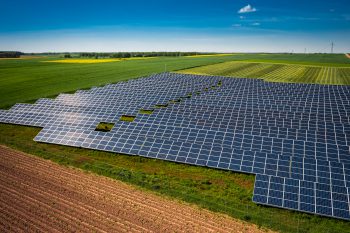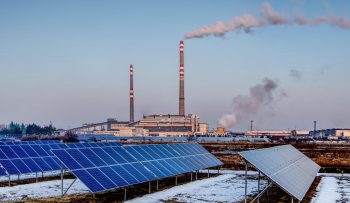66 results for “seia“
SEIA Congratulates Secretary Doug Burgum on His Confirmation to Lead the U.S. Department of the Interior
WASHINGTON, D.C.— Following is a statement by Abigail Ross Hopper, president and CEO of the Solar Energy Industries Association (SEIA), on the confirmation of President Trump’s Interior secretary, Doug Burgum: “On behalf of ...
Solar and Storage Industry Statement on Bipartisan Permitting Reform Legislation
WASHINGTON, D.C. — Today, U.S. Senators Manchin (I-WV) and Barrasso (R-WY) released the Energy Permitting Reform Act of 2024 to enhance energy security and improve permitting for energy infrastructure projects. In April, more than ...
Prevailing Wage and Apprenticeships: Important Updates in Treasury’s Final Rules
The Inflation Reduction Act’s (IRA) prevailing wage and apprenticeship rules are arguably the richest clean energy incentives in the statute, designed to ensure that the hundreds of gigawatts of clean energy capacity projected ...
CEQ Codifies Solar Permitting Reforms, Creating a Win-Win for Clean Energy and the Environment
WASHINGTON, D.C. — Today the Council on Environmental Quality (CEQ) released final rules making important amendments to the National Environmental Policy Act (NEPA) and implementing the 2023 Financial Responsibility Act. Over the last three ...
200 Clean Energy Companies Urge Congress to Pass Siting, Permitting, and Transmission Reform Before 2024 Election
WASHINGTON, D.C. — Today nearly 200 solar and storage companies sent a letter to congressional leaders calling for legislation to improve permitting, project siting, transmission, and public lands access for solar and solar ...
Final Rules Implement SEIA’s Solutions to Lower Fees and Streamline Renewable Energy Development on Public Lands
Today the U.S. Bureau of Land Management (BLM) published final rules to govern leasing and rental rates for renewable energy projects on public lands. The final rules closely follow recommendations from the Solar Energy Industries Association (SEIA) to streamline clean energy development on federal lands.
Past, Present, and Future: Celebrating Black History in the Solar and Storage Industry
Black history is foundational to the past, present, and future of the U.S. solar and storage industry. As we celebrate Black History Month, the Solar Energy Industries Association (SEIA) is focused on uplifting the work of Black leaders, delivering resources to improve representation, and advocating for policies that address the inequality in our energy systems.
Solar Industry Responds to Bureau of Land Management Opening 22M Acres of Federal Lands to Solar
Today the Bureau of Land Management released a revised environmental review of the Western Solar Plan, also known as the Solar Programmatic Environmental Impact Statement (PEIS). This new document will govern leasing public lands for solar.
Health, Wealth, And Education: How SEIA’s Clean Energy Advocacy is Prioritizing Environmental Justice
Our energy systems are changing. For decades, communities of color and low-income communities have been systematically excluded from the benefits of energy development while, at the same time, bearing a disproportionate share of its pollution. The transition to clean energy represents a generational opportunity to reverse decades of environmental racism and build a more inclusive and just energy system that all Americans can participate in and benefit from.





